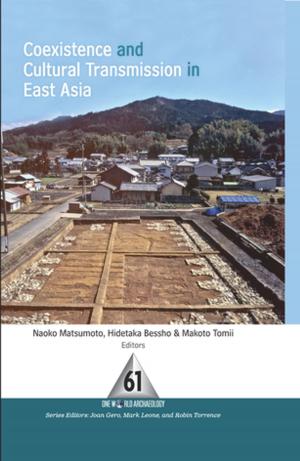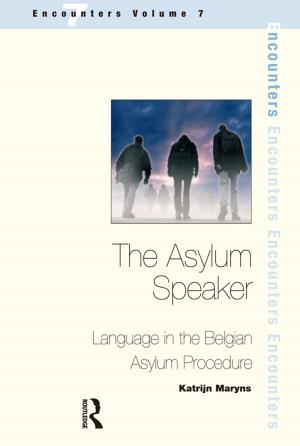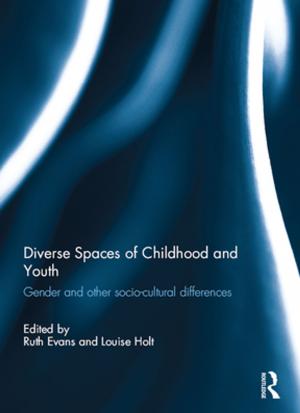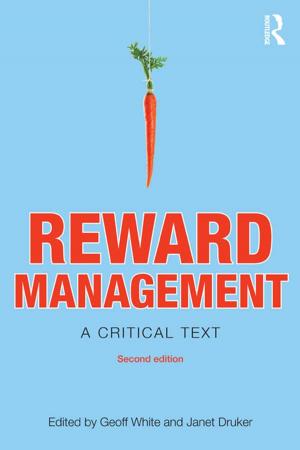Trauma and Dissociation in a Cross-Cultural Perspective
Not Just a North American Phenomenon
Nonfiction, Health & Well Being, Medical, Patient Care, Health Care Delivery, Family & Relationships, Family Relationships, Abuse| Author: | ISBN: | 9781136451836 | |
| Publisher: | Taylor and Francis | Publication: | May 13, 2013 |
| Imprint: | Routledge | Language: | English |
| Author: | |
| ISBN: | 9781136451836 |
| Publisher: | Taylor and Francis |
| Publication: | May 13, 2013 |
| Imprint: | Routledge |
| Language: | English |
An international look at the similarities and differences of long-lasting trauma
Trauma and Dissociation in a Cross-Cultural Perspective examines the psychological, sociological, political, economic, and cultural aspects of trauma and its consequences on people around the world. Dispelling the myth that trauma-related dissociative disorders are a North American phenomenon, this unique book travels through more than a dozen countries to analyze the effects of long-lasting traumatization-both natural and man-made-on adults and children. Working from theoretical and clinical perspectives, the field’s leading experts address trauma in situations that range from the psychological effects of the Troubles in Northern Ireland to the emergence of Hikikomori, the phenomenon of social withdrawal in Japanese youth.
Reactions to trauma can be both unique according to a person’s culture and similar to the experiences of others around the world. Dissociation, intense grief, anger, and survivor’s guilt are common responses as people split off mentally, physically, and emotionally from the source of the trauma, whether it’s an act of nature (tsunami, earthquake, flood, etc.) or the trauma created by violence, physical, sexual, and emotional abuse, assault, confinement, kidnapping, and war. Trauma and Dissociation in a Cross-Cultural Perspective examines the efforts of clinicians and researchers in Europe, Asia, the Middle East, South America, Australia, and New Zealand to develop sociopsychological methods of providing counseling to people who are suffering physically, emotionally and spiritually, training for professionals counted on to dispense that counseling, and economic and political solutions that might help to limit the devastating effects of natural disasters.
Trauma and Dissociation in a Cross-Cultural Perspective examines:
-
the tensions between the National Health Service and the private sector in the United Kingdom
-
how the Mandarin version of the Dissociative Experiences Scale (DES) is used in China
-
Djinnai, a culture-bound syndrome and possession trance disorder found in Iran
-
how colonialism has transmitted trauma to the Maori people of New Zealand
-
transgenerational trauma in Turkey
-
religious rituals and spirit possession in the Philippines
-
memory wars in Israel
-
traumatic syndromes among the French
-
differences in dissociative experiences among Chinese and Japanese youth
-
childhood trauma in Argentina
-
and much more
Trauma and Dissociation in a Cross-Cultural Perspective is an enlightening professional resource for anyone working in psychology, sociology, psychiatry, and psychotherapy.
An international look at the similarities and differences of long-lasting trauma
Trauma and Dissociation in a Cross-Cultural Perspective examines the psychological, sociological, political, economic, and cultural aspects of trauma and its consequences on people around the world. Dispelling the myth that trauma-related dissociative disorders are a North American phenomenon, this unique book travels through more than a dozen countries to analyze the effects of long-lasting traumatization-both natural and man-made-on adults and children. Working from theoretical and clinical perspectives, the field’s leading experts address trauma in situations that range from the psychological effects of the Troubles in Northern Ireland to the emergence of Hikikomori, the phenomenon of social withdrawal in Japanese youth.
Reactions to trauma can be both unique according to a person’s culture and similar to the experiences of others around the world. Dissociation, intense grief, anger, and survivor’s guilt are common responses as people split off mentally, physically, and emotionally from the source of the trauma, whether it’s an act of nature (tsunami, earthquake, flood, etc.) or the trauma created by violence, physical, sexual, and emotional abuse, assault, confinement, kidnapping, and war. Trauma and Dissociation in a Cross-Cultural Perspective examines the efforts of clinicians and researchers in Europe, Asia, the Middle East, South America, Australia, and New Zealand to develop sociopsychological methods of providing counseling to people who are suffering physically, emotionally and spiritually, training for professionals counted on to dispense that counseling, and economic and political solutions that might help to limit the devastating effects of natural disasters.
Trauma and Dissociation in a Cross-Cultural Perspective examines:
-
the tensions between the National Health Service and the private sector in the United Kingdom
-
how the Mandarin version of the Dissociative Experiences Scale (DES) is used in China
-
Djinnai, a culture-bound syndrome and possession trance disorder found in Iran
-
how colonialism has transmitted trauma to the Maori people of New Zealand
-
transgenerational trauma in Turkey
-
religious rituals and spirit possession in the Philippines
-
memory wars in Israel
-
traumatic syndromes among the French
-
differences in dissociative experiences among Chinese and Japanese youth
-
childhood trauma in Argentina
-
and much more
Trauma and Dissociation in a Cross-Cultural Perspective is an enlightening professional resource for anyone working in psychology, sociology, psychiatry, and psychotherapy.















